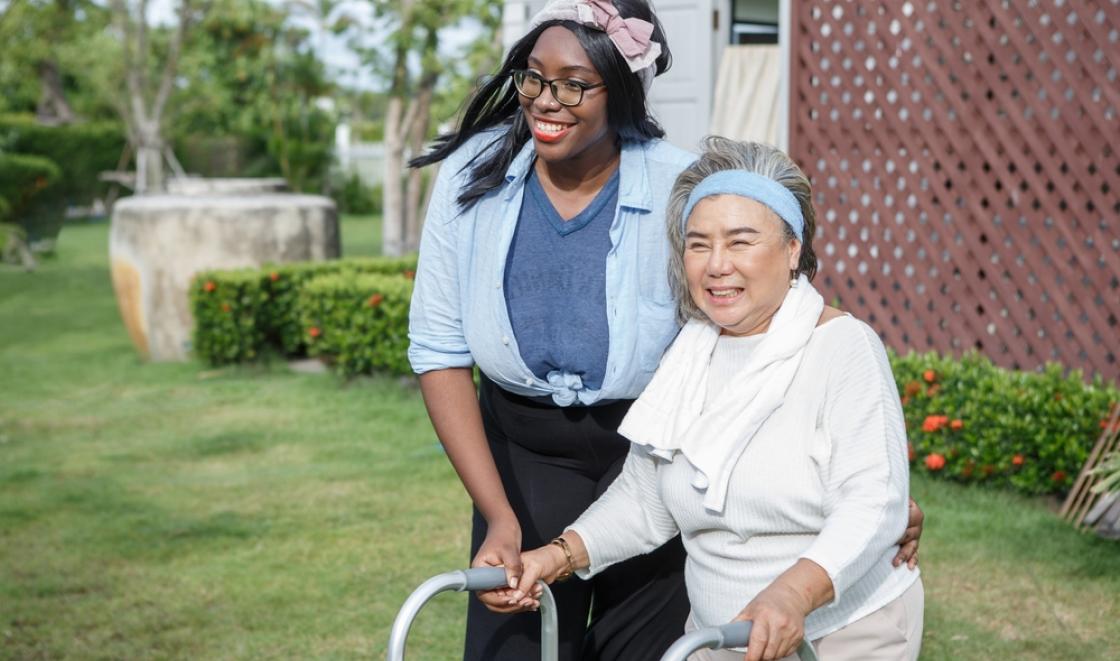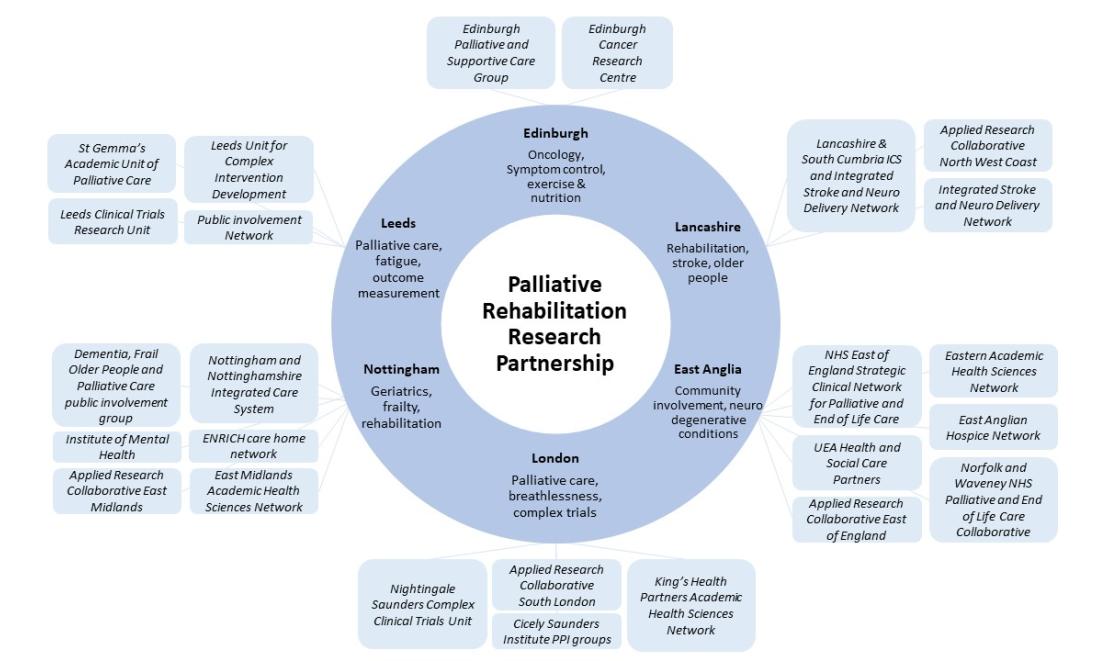Our aim is to bring together clinicians, researchers, and service users from diverse areas to progress high-quality research around the topic area of functional loss and rehabilitation in palliative and end of life care.
Why is rehabilitation important in palliative care?
When people are living with illness they often experience ‘functional loss’ where they unable to do usual everyday activities they would like or need to do. These might include simple things like bathing and dressing, or more complex things like going shopping or managing bills. Life-limiting illnesses (like cancer, chronic lung disease, and dementia) and many symptoms (like pain, breathlessness, and fatigue) limit the everyday tasks people can do. As a result, functional loss is a common source of suffering for patients and their families.
Rehabilitation aims to support a person to carry out everyday activities that have been affected by illness as well as possible. Maximising function should be an important part of providing good palliative care. However, in practice, not everyone has equal access to rehabilitation. Where resources are limited, these services have often been restricted or not provided. This is partly due to a lack of high-quality research about the best ways to deliver this type of support.
What will the research partnership do?
Together with professionals and public members, our Palliative Rehabilitation Research Partnership will:
1. Map and build skills
Across our partnership we will find out what current services are available, and what knowledge and skills people have. We will then create opportunities for people to share their knowledge and skills by offering structured training sessions, mentorship, and skill-sharing opportunities.
2. Identify important, unanswered research questions
We will work with professionals and members of the public to identify important unanswered research questions about functional loss and rehabilitation in palliative and end of life care.
3. Develop high-quality research ideas
We will lead collaborative workshops to develop new research ideas to answer the most promising questions identified during activity 2. During the workshops, participants will be supported to work closely with expert researchers and public members (people with a life-limiting illness and caregivers) to review and strengthen their suggestions.
Our activities will support diverse teams across the country to deliver high-quality research about functional loss and rehabilitation in palliative and end of life care. Overall, we hope that this work will improve care for patients and their families, and address inequalities in how rehabilitation is delivered during this important time.
Who is leading this research partnership?
Our partnership is co-led by Dr Mathew Maddocks (King’s College London) and Prof Rowan Harwood (The University of Nottingham), with colleagues Dr Alison Cowley (Nottingham University Hospitals NHS Trust), Dr Barry Laird (The University of Edinburgh), Dr Guy Peryer (University of East Anglia), Dr Lucy Zeigler (University of Leeds), Prof Louise Connell (University of Central Lancashire), and Dr Lisa Brighton (King’s College London).
Our initial network of partners and linked infrastructure brings together complementary skills in leading complex palliative and geriatric rehabilitation research, and special interests within the topic of functional decline.
Joining our partnership
We welcome all people with clinical, research and personal experience relevant to functional loss and rehabilitation towards the end of life to join and participate in partnership meetings and activities.
To find out more, please contact our partnership co-ordinator Dr Lisa Brighton at: pall-rehab-partnership@kcl.ac.uk.
This project is funded by the National Institute for Health Research (NIHR; Award ID NIHR135171). The views expressed are those of the author(s) and not necessarily those of the NIHR or the Department of Health and Social Care.

